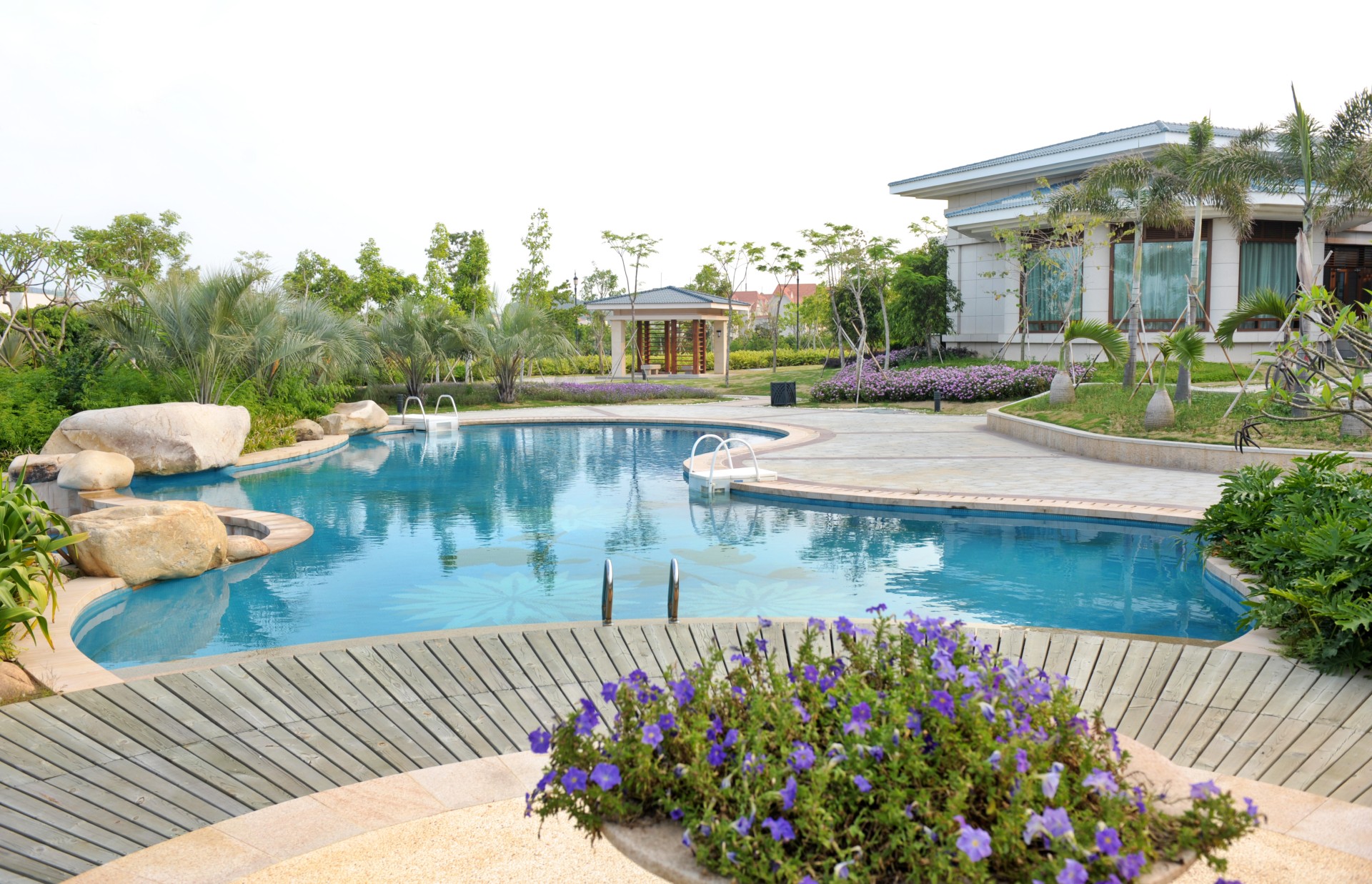For some swim schools and instructors, it can prove difficult to find a venue. Hotel pools may not be available, and local aquatics facilities or community pools may not have the availability or the desire for competing programming in their space.
To fill the gap, some swim instructors are considering pools rented through online apps such as Swimply, through which you can purchase the space by the hour.
“There are pros and cons,” says Alissa Magrum, executive director for the National Drowning Prevention Alliance. “Certainly a pro is that there are more pools to teach more swim lessons in, and it might be more cost-effective to rent a pool for an hour or two. It makes things more accessible to a private swimming instructor who doesn’t have their own backyard pool to teach in.”
The privacy of a residential pool might prove more friendly to special-needs clients, including those more sensitive to stimulation. And the owners may be more able or willing to meet certain criteria tailored to clients. Melon Dash considered this for her niche clientele — adults who are afraid to swim. “We teach in warm water because people who are afraid are cold,” says the CEO of Miracle Swimming School for Adults, in Sarasota, Fla. Public pool operators may not be able to accommodate this, she adds.
Still, experts warn, these properties can carry risk, so use care when deciding whether to pursue this route and choosing a pool.
The short-term rental of pools, whether on platforms such as Swimply or as part of properties rented on sites like Airbnb and Vrbo, has gained the attention of safety advocates and government officials. Here, we take a look at these pools, while experts offer advice for instructors considering such venues.
Evading definition
The issue of short-term rentals and pools goes beyond their use for swim instruction.
Cases involving drownings on such sites are appearing in court dockets enough to gain attention. It isn’t known how many or how the rates would compare with other settings. In the last two years, attorney Michael Haggard has handled approximately six, says the managing partner of The Haggard Law Firm in Coral Gables, Fla.
As some see it, the problem stems from the fact that these pools are not governed like commercial venues — no signage, no stepped-up safety measures. It’s become enough of an issue that at least two states — Oregon and Washington — are considering legislation to address it, says Haggard, who has been approached by officials exploring the issue in other states as well.
Expert advice
This unclear categorization, in addition to questions surrounding whether the platforms themselves impose any safety requirements on pools, cause some to hesitate using these sites.
Chances are, a residential pool won’t have the kind of safety and protective equipment of a commercial venue. While some municipalities do hold short-term rental pools to the same codes as commercial, that is the exception. Another concern: Homeowner insurance generally won’t carry as much coverage as policies for a commercial site.
And, truth be told, owners of the pools aren’t necessarily interested in this business. While Dash has pursued these properties for her school, none went beyond an initial conversation.
For these reasons, some aquatics professionals outright advise against this route. However, if considering it, follow these five tips:
1. Check local codes and property rules. Find out if the governing body, whether it be the state, county or city, deems these pools as residential or commercial. Make sure the pool you’re considering follows any local codes that apply. Also check for any non-pool-related regulations such as required permits, as well as any HOA rules, says Angela Wild, of Elemental Aquatics, a swim school based in San Diego.
2. Vet the pool. Whether or not they are held to commercial code, make sure any pool you consider meets standards you would apply to any other venue. For instance, find out if it has been outfitted with such equipment as shepherd’s hooks and AEDs. If it doesn’t have those protections, consider bringing it yourself, Haggard recommends. Also see if the water quality is up to snuff, and discuss who should be responsible for the chemistry. Ask about water temperature and options for bringing it to the level you need.
3. Check the surrounding area. Make sure the site is sanitary and safe from tripping hazards and other concerns. Also look for proper accommodations such as restrooms, changing areas, and even parking. Find out if drones, loud music or other disturbances could be part of the deal, Dash adds.
4. Evaluate insurance coverage. Make sure both you and the homeowner have adequate insurance to cover a potential incident. While the owner may be held primarily liable if the worst happens, the swim instructor probably would be included in resulting litigation.
5. Get it in writing. Don’t rely on the platform’s verbiage to cover everything. Try to draw up a separate contract between you and the property owner to ensure everybody is on the same page and accountable.


